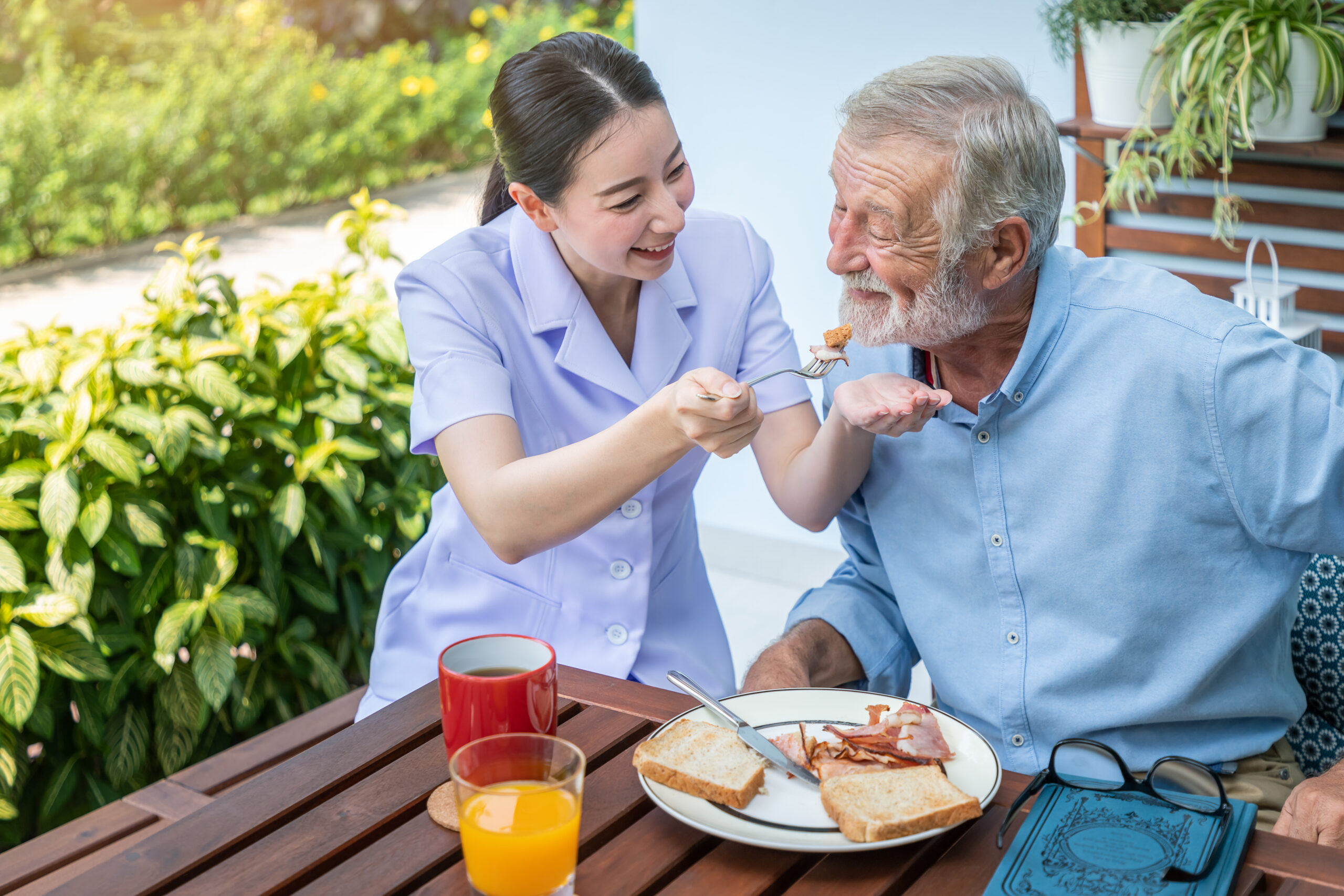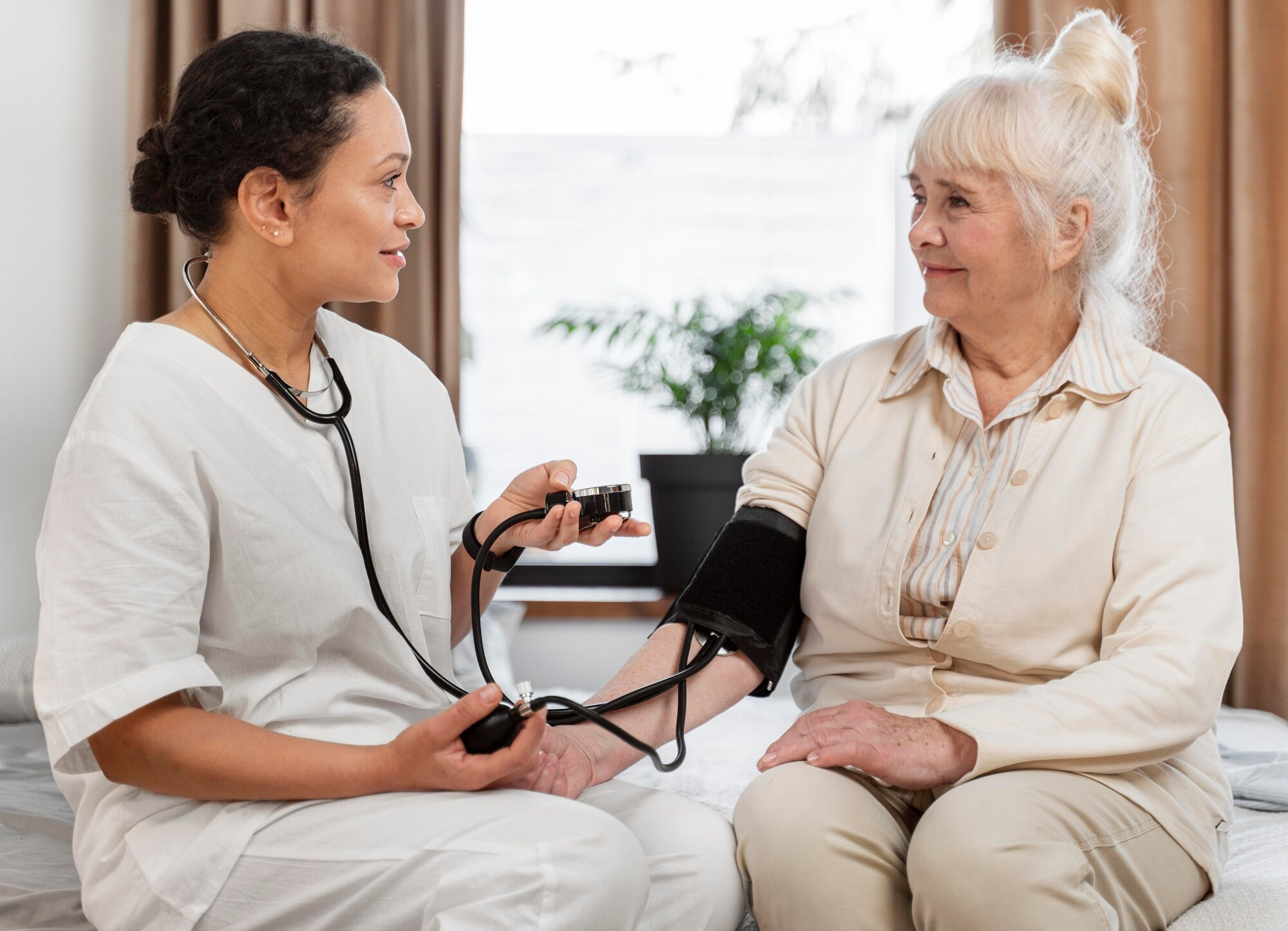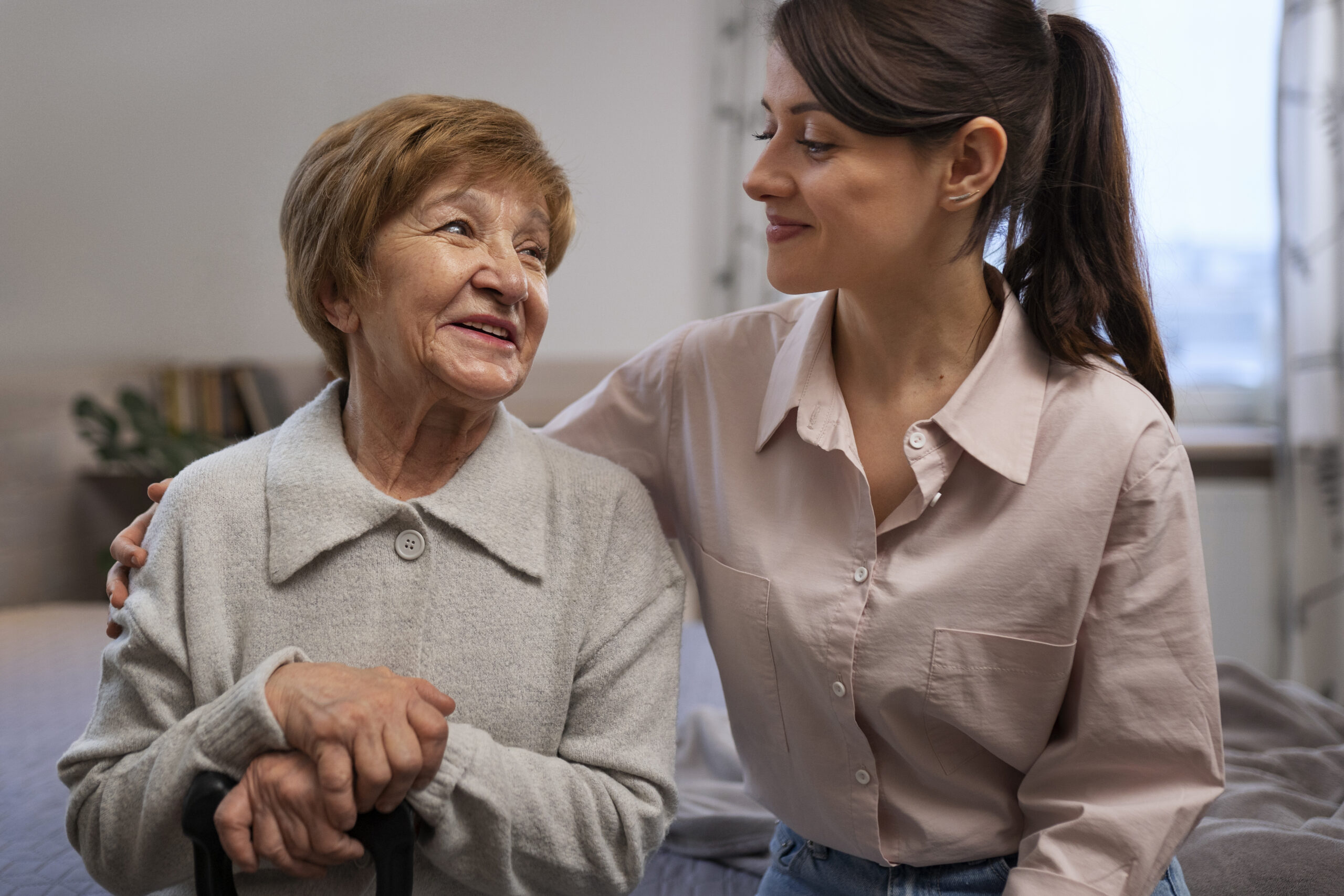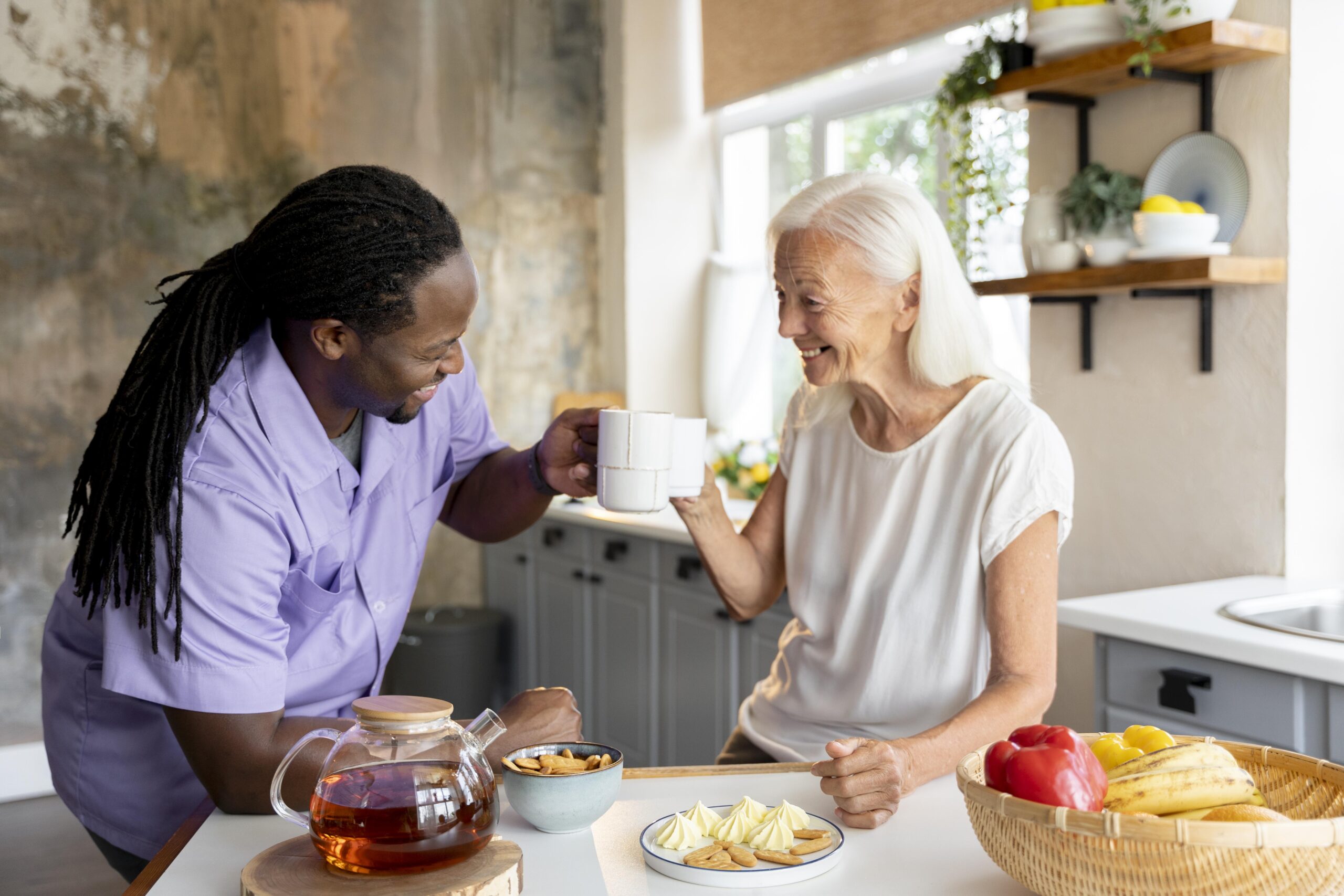Coming home after a hospital stay can be both a relief and a challenge. Elderly companion care provides essential support for seniors returning home after hospitalization.
While returning to familiar surroundings brings comfort, the recovery period presents unique challenges that require specialized support.
At Kizuna, we’ve witnessed how proper companion care for elderly patients transforms the recovery journey from a challenging ordeal into a supported transition back to independence.
Read more: Why Is It Important to Have a Companion for Old People
Creating a Smooth Transition from Hospital to Home
The journey from hospital to home requires planning and coordination. Here’s how to prepare:
Before Discharge:
- Understand discharge instructions completely – Ask questions about medications, follow-up appointments, and warning signs
- Prepare the home environment – Remove tripping hazards, consider temporary mobility aids, and arrange sleeping accommodations on the main floor if needed
- Arrange for elder care assistance – Professional caregivers can bridge the gap between hospital care and independence
The First 24-48 Hours:
This initial period often sets the tone for recovery. During this time, seniors benefit from:
- Medication management to ensure prescriptions are taken correctly
- Assistance with personal care while energy levels are low
- Monitoring for concerning symptoms or side effects
- Emotional support during this adjustment period
Why Elderly Companion Care Matters During Recovery
The weeks following hospital discharge represent a critical time for seniors.
Healthcare research shows nearly 20% of elderly patients experience complications within 30 days of leaving the hospital, often resulting in readmission.
This statistic highlights why specialized recovery companion care isn’t just helpful, it’s essential for safety and healing.
Recovery periods vary based on the medical situation, so it is crucial for your family to prepare based on your loved one’s medical condition.
During these vulnerable periods, having consistent elderly companion care creates stability that supports healing and prevents complications.
How Caregivers Support Families
Family members often step up to provide elder care during recovery, but this role comes with challenges such as:
- Work obligations and competing responsibilities
- Geographic distance from their loved one
- Risk of caregiver burnout during extended recoveries
- Lack of specialized knowledge for complex needs
This is especially true for family members living in other cities who cannot be physically present each day.
Professional elderly companion care services complement family efforts by providing:
- Scheduled assistance during times the family can’t be present
- Overnight monitoring for seniors with safety concerns
- Short-term respite care gives family caregivers necessary breaks
- Specialized knowledge about recovery processes
Their specialized skills address complex care needs while regular updates keep the family informed about progress and concerns.
This collaborative approach ensures the senior receives consistent care while family members maintain their own well-being.
Essential Components of Post-Hospital Companion Care
Effective recovery support addresses both physical needs and emotional well-being. Professional elderly companion care during recovery typically includes:
Medication Management and Medical Support
Medication errors represent one of the leading causes of hospital readmissions. Companion caregivers help seniors navigate new medication routines by:
- Creating clear medication schedules
- Providing timely reminders
- Watching for potential side effects
- Ensuring prescriptions are refilled promptly
Caregivers also provide transportation to follow-up appointments and communicate important observations to healthcare providers, creating a crucial link between clinical care and daily life.
Assistance with Daily Activities
Recovery often temporarily limits seniors’ abilities to manage routine tasks. Compassionate companionship includes help with:
- Personal hygiene and dressing
- Nutritious meal preparation
- Light housekeeping to maintain a safe environment
- Safe mobility assistance that prevents falls
This practical support conserves energy for healing while preserving dignity and comfort during a challenging time.
Nutrition and Hydration

Seniors recovering at home may face challenges eating balanced meals, especially if they have dietary restrictions or reduced appetite.
Companion caregivers support recovery by:
- Preparing nutrient-rich meals aligned with medical guidance (e.g., low-sodium for heart patients, protein-rich for wound healing).
- Encouraging adequate fluid intake, especially in those with mobility or incontinence concerns
- Making meals a social activity, which encourages regular eating and reduces feelings of loneliness
Proper nutrition and hydration aren’t just comforts, they’re critical to wound healing, medication effectiveness, and overall recovery speed.
Emotional Support and Engagement
The psychological aspects of recovery significantly impact outcomes.
Seniors often experience frustration with temporary limitations, anxiety about regaining independence, and concerns about burdening family.
Elderly companion care addresses these emotional needs through:
- Meaningful conversation and active listening
- Encouragement and positive reinforcement
- Engaging activities adapted to current abilities
- Reassurance during moments of uncertainty
This emotional support counteracts isolation and maintains motivation throughout the recovery journey.
Cognitive Recovery and Mental Sharpness
While physical healing takes priority after a hospital stay, cognitive recovery is equally important. This is especially true for seniors who may have experienced disorientation or mild delirium during their hospital stay.
Elderly companion caregivers can play a vital role in supporting cognitive health by:
- Encouraging light mental stimulation through puzzles, music, and storytelling
- Helping maintain routines that support brain function, like regular sleep and hydration
- Noticing early signs of confusion or memory issues and communicating them to families or medical professionals
Cognitive engagement supports emotional well-being and may even help reduce the risk of longer-term cognitive decline post-hospitalization.
Creating a Personalized Recovery Plan
No two seniors have identical needs during recovery. Effective elderly companion care begins with a thorough assessment and creates a personalized plan considering:
Medical Requirements and Recovery Goals
Companion caregivers should understand:
- Diagnosis and treatment details
- Specific restrictions and precautions
- Warning signs that require medical attention
- Rehabilitation exercises and goals
This medical context ensures that companions provide appropriate support tailored to the specific recovery journey.
Home Environment Safety and Comfort
Recovery-focused companion care includes evaluating the home for:
- Potential fall hazards that need addressing
- Accessibility challenges during limited mobility
- Temporary modifications that might enhance safety
- Equipment needs for home recovery
These environmental considerations prevent accidents while maximizing comfort.
Evolving Support Throughout Recovery
As healing progresses, companion care should adjust accordingly:
- More intensive support during early recovery
- Gradual encouragement of independence as abilities return
- Regular reassessment of needs and adjustment of services
- Coordination with healthcare providers about progress
This dynamic approach prevents both undercare and overcare, supporting optimal recovery outcomes.
Planning for Long-Term Wellness Beyond Recovery
As your loved one progresses through recovery, the focus gradually shifts from immediate medical needs to ongoing wellness. This transition period is ideal for:
- Establishing sustainable and healthy habits
- Creating safety protocols to prevent future hospitalizations
- Evaluating the home for accessibility improvements
- Determining the appropriate level of continuing support
The Kizuna Approach to Recovery Support
At Kizuna, we believe elderly companion care during recovery should combine professional expertise with genuine human connection. Our approach focuses on:
- Building meaningful relationships with seniors in our care
- Providing consistent caregivers for continuity and trust
- Celebrating progress milestones, however small
- Maintaining transparent communication with families
- Coordinating effectively with healthcare teams
This relationship-centered approach transforms recovery from a medical process into a supported journey with dignity and connection at its heart.
If your loved one is preparing for hospital discharge or already recovering at home, compassionate elderly companion care can significantly improve their experience and outcomes.
Contact us today to discuss how our recovery companion services can be tailored to your family’s specific situation, creating a supportive environment that promotes healing, safety, and well-being.



